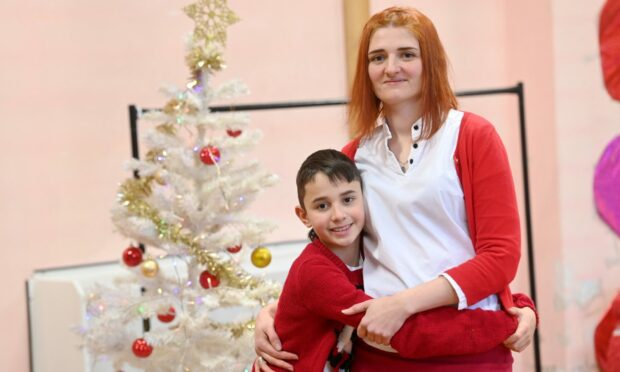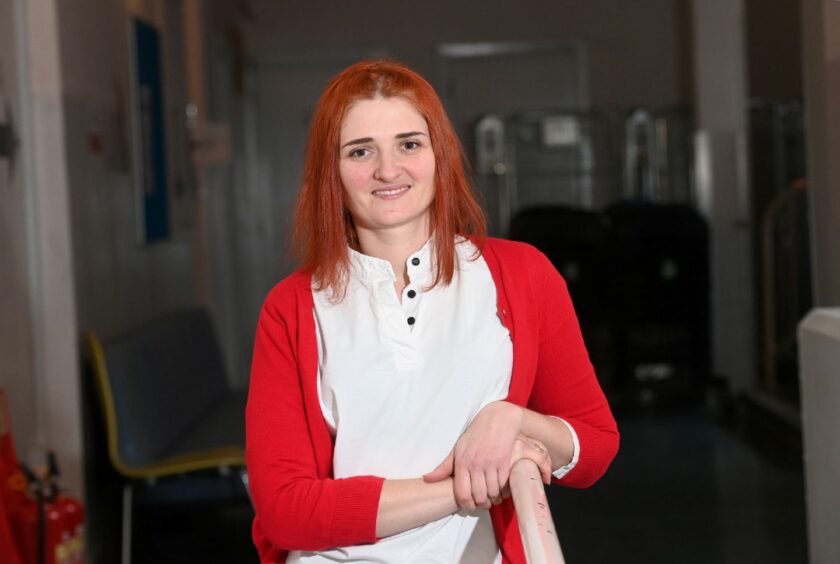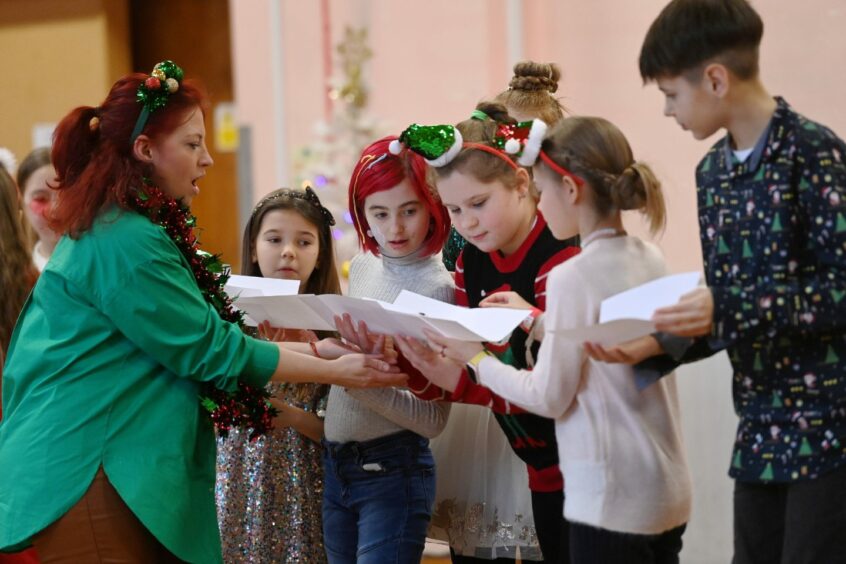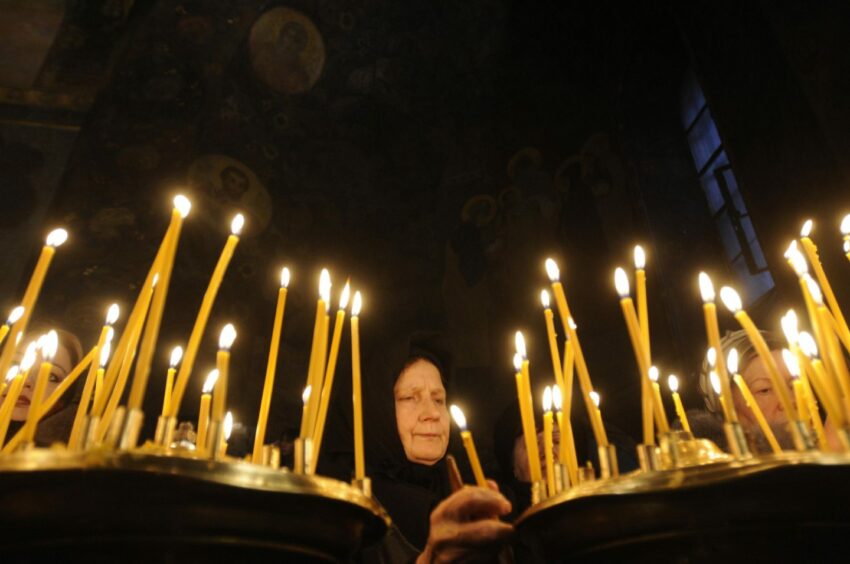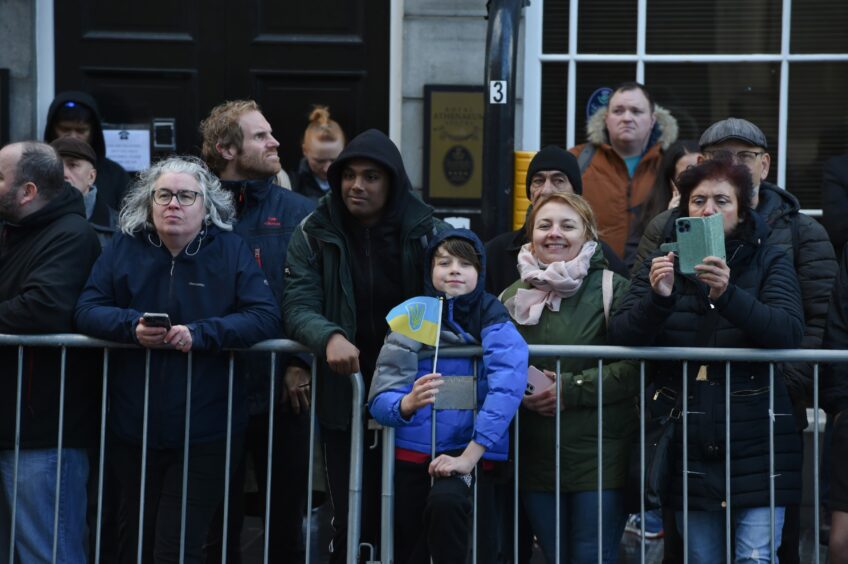Christmas and all of its trappings look different to everyone.
Depending on family traditions and individual cultural norms, each person’s perfect Christmas Day differs in food and habits.
But for some, it is not even celebrated in December.
In Ukraine, families come together on January 7 for their Christmas Day and to reflect on the year gone by and year to be. A tradition that this year, has never been more challenging.
‘We just wanted to be safe’
“We are really far away from home,” said Uliana Shtayn, a Ukrainian refugee living in Aberdeen.
“And of course now the closer the holiday comes, the more difficult it is.”
Mrs Shtayn is one of the many who fled the conflict in her home country in June this year.
Leaving with only her two children, Sofia, 7, and Svyatoslav, 10, and 10kg suitcase, she said her husband was in Kyiv when the war started.
She said: “So he saw everything from the first hours, that’s why we just packed the car and went to the border directly without hesitation.
“It is an experience I would never expect. I left with two children and one suitcase. All your life packed in one suitcase.
“I didn’t know whether I would be in a field, in a hotel, or in a camp. It didn’t matter at that time because all we wanted was just to be safe.”
Hard to be away from loved ones this year
As the festivities have approached in Scotland, the separation from her husband and family still in the Ukraine has become more stark.
Similar to Scotland, Christmas tends to be a family-orientated occasion in the Ukraine.
However, Mrs Shtayn said she has had to explain to her children why St Nicholas, an important festive figure in the Ukraine, is not visiting Scotland and why people in the UK put presents under the tree.
She added: “Of course we try and combine the traditions. We really try to integrate but we would like not to forget that we have our own thing.
“This year is super difficult and it was not expected that we would be so far away from home for so long.”
What does Christmas look like in the Ukraine?
According to tradition, Ukrainian families gather around one table for Christmas Eve dinner on January 6.
Many will fast for most the day until the late afternoon when the first star appears in the sky.
This is meant to represent the birth of Jesus and the journey of the wise men on their way to find him. Only then can the meal start.
Speaking fondly of her own memories, Mrs Shtayn, said on Christmas families will go to church together, sing carols and then gather round for a meal.
“We have 12 meals usually at the table for the 12 apostles,” the 35-year-old said. “The table is also decorated in a special way.
“We put hay under the tablecloth, this is of course for the baby Jesus and we also put garlic on the corner of the table. This is just to warn bad ghosts away.
“We make a nest of the hay and put it under the table and hide sweets and different coins under the table so the children can look for the sweets.
“This was a tradition since my childhood, since my grandfather who was born in 1929. Almost 100 years. And of course we wear our traditional clothes called Vyshyvanka.”
12 Days (Dishes) of Ukrainian Christmas 🎄
Day 1: Kutia (Кутя)
The main dish that’s made with wheat and barley, mixed with poppy seeds, honey, and nuts. It is sweet with a grainy texture. This dish is a symbol of unity of generations: the past and new ones. pic.twitter.com/icmmdQeoNd
— Julia Kril 🇺🇦 (@juliavkril) December 15, 2022
The feast usually begins with a dish called Kutia, a meal cooked with wheat, barley or rice and seasoned with poppy seeds, nuts and honey.
In western Ukraine, where Mrs Shtayn is from, the dish looks like a soup but it has different variations depending on what region people live.
We want our children to remember their ‘Ukrainian spirit’
This year things will look very different with lots of families living in hotels, renting homes and living with host families.
Mariya Pavlova, deputy director of the Ukrainian Association in Aberdeen, said challenges were being faced by Ukrainians in both countries.
In Ukraine, people are experiencing conflict, blackouts and loss of loved ones.
Meanwhile in the UK, families are left unsettled in other’s homes and hotels trying to find jobs and adjust to a completely different life. All the while worrying about family and friends in Ukraine.
Mrs Pavlova added: “When the war started, I felt so guilty because I’m Ukrainian but I’m safe but I felt a sense of guilt that we were ok here because all of our families, we all had someone who was in Ukraine.
“So it’s really mixed, complicated emotions that surround the situation.”
Mrs Shtayn teaches voluntarily at the Ukrainian Hub at Rosemount Community Centre and said it was important for her children to have that community but also to pass on their heritage.
She added: “We try to show children our traditions and make sure they do not forget them because some of them came here at a young age and it could be a couple of years they live here.
“It could be that they lose this Ukrainian spirit and we would like them to remember.”
